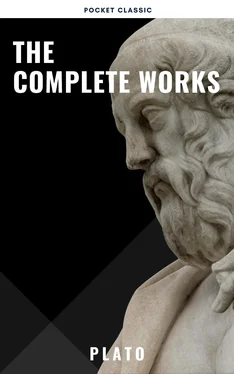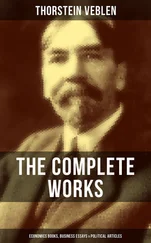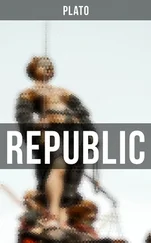LACHES: I have but one feeling, Nicias, or (shall I say?) two feelings, about discussions. Some would think that I am a lover, and to others I may seem to be a hater of discourse; for when I hear a man discoursing of virtue, or of any sort of wisdom, who is a true man and worthy of his theme, I am delighted beyond measure: and I compare the man and his words, and note the harmony and correspondence of them. And such an one I deem to be the true musician, attuned to a fairer harmony than that of the lyre, or any pleasant instrument of music; for truly he has in his own life a harmony of words and deeds arranged, not in the Ionian, or in the Phrygian mode, nor yet in the Lydian, but in the true Hellenic mode, which is the Dorian, and no other. Such an one makes me merry with the sound of his voice; and when I hear him I am thought to be a lover of discourse; so eager am I in drinking in his words. But a man whose actions do not agree with his words is an annoyance to me; and the better he speaks the more I hate him, and then I seem to be a hater of discourse. As to Socrates, I have no knowledge of his words, but of old, as would seem, I have had experience of his deeds; and his deeds show that free and noble sentiments are natural to him. And if his words accord, then I am of one mind with him, and shall be delighted to be interrogated by a man such as he is, and shall not be annoyed at having to learn of him: for I too agree with Solon, ‘that I would fain grow old, learning many things.’ But I must be allowed to add ‘of the good only.’ Socrates must be willing to allow that he is a good teacher, or I shall be a dull and uncongenial pupil: but that the teacher is younger, or not as yet in repute—anything of that sort is of no account with me. And therefore, Socrates, I give you notice that you may teach and confute me as much as ever you like, and also learn of me anything which I know. So high is the opinion which I have entertained of you ever since the day on which you were my companion in danger, and gave a proof of your valour such as only the man of merit can give. Therefore, say whatever you like, and do not mind about the difference of our ages.
SOCRATES: I cannot say that either of you show any reluctance to take counsel and advise with me.
LYSIMACHUS: But this is our proper business; and yours as well as ours, for I reckon you as one of us. Please then to take my place, and find out from Nicias and Laches what we want to know, for the sake of the youths, and talk and consult with them: for I am old, and my memory is bad; and I do not remember the questions which I am going to ask, or the answers to them; and if there is any interruption I am quite lost. I will therefore beg of you to carry on the proposed discussion by your selves; and I will listen, and Melesias and I will act upon your conclusions.
SOCRATES: Let us, Nicias and Laches, comply with the request of Lysimachus and Melesias. There will be no harm in asking ourselves the question which was first proposed to us: ‘Who have been our own instructors in this sort of training, and whom have we made better?’ But the other mode of carrying on the enquiry will bring us equally to the same point, and will be more like proceeding from first principles. For if we knew that the addition of something would improve some other thing, and were able to make the addition, then, clearly, we must know how that about which we are advising may be best and most easily attained. Perhaps you do not understand what I mean. Then let me make my meaning plainer in this way. Suppose we knew that the addition of sight makes better the eyes which possess this gift, and also were able to impart sight to the eyes, then, clearly, we should know the nature of sight, and should be able to advise how this gift of sight may be best and most easily attained; but if we knew neither what sight is, nor what hearing is, we should not be very good medical advisers about the eyes or the ears, or about the best mode of giving sight and hearing to them.
LACHES: That is true, Socrates.
SOCRATES: And are not our two friends, Laches, at this very moment inviting us to consider in what way the gift of virtue may be imparted to their sons for the improvement of their minds?
LACHES: Very true.
SOCRATES: Then must we not first know the nature of virtue? For how can we advise any one about the best mode of attaining something of which we are wholly ignorant?
LACHES: I do not think that we can, Socrates.
SOCRATES: Then, Laches, we may presume that we know the nature of virtue?
LACHES: Yes.
SOCRATES: And that which we know we must surely be able to tell?
LACHES: Certainly.
SOCRATES: I would not have us begin, my friend, with enquiring about the whole of virtue; for that may be more than we can accomplish; let us first consider whether we have a sufficient knowledge of a part; the enquiry will thus probably be made easier to us.
LACHES: Let us do as you say, Socrates.
SOCRATES: Then which of the parts of virtue shall we select? Must we not select that to which the art of fighting in armour is supposed to conduce? And is not that generally thought to be courage?
LACHES: Yes, certainly.
SOCRATES: Then, Laches, suppose that we first set about determining the nature of courage, and in the second place proceed to enquire how the young men may attain this quality by the help of studies and pursuits. Tell me, if you can, what is courage.
LACHES: Indeed, Socrates, I see no difficulty in answering; he is a man of courage who does not run away, but remains at his post and fights against the enemy; there can be no mistake about that.
SOCRATES: Very good, Laches; and yet I fear that I did not express myself clearly; and therefore you have answered not the question which I intended to ask, but another.
LACHES: What do you mean, Socrates?
SOCRATES: I will endeavour to explain; you would call a man courageous who remains at his post, and fights with the enemy?
LACHES: Certainly I should.
SOCRATES: And so should I; but what would you say of another man, who fights flying, instead of remaining?
LACHES: How flying?
SOCRATES: Why, as the Scythians are said to fight, flying as well as pursuing; and as Homer says in praise of the horses of Aeneas, that they knew ‘how to pursue, and fly quickly hither and thither’; and he passes an encomium on Aeneas himself, as having a knowledge of fear or flight, and calls him ‘an author of fear or flight.’
LACHES: Yes, Socrates, and there Homer is right: for he was speaking of chariots, as you were speaking of the Scythian cavalry, who have that way of fighting; but the heavy-armed Greek fights, as I say, remaining in his rank.
SOCRATES: And yet, Laches, you must except the Lacedaemonians at Plataea, who, when they came upon the light shields of the Persians, are said not to have been willing to stand and fight, and to have fled; but when the ranks of the Persians were broken, they turned upon them like cavalry, and won the battle of Plataea.
LACHES: That is true.
SOCRATES: That was my meaning when I said that I was to blame in having put my question badly, and that this was the reason of your answering badly. For I meant to ask you not only about the courage of heavy-armed soldiers, but about the courage of cavalry and every other style of soldier; and not only who are courageous in war, but who are courageous in perils by sea, and who in disease, or in poverty, or again in politics, are courageous; and not only who are courageous against pain or fear, but mighty to contend against desires and pleasures, either fixed in their rank or turning upon their enemy. There is this sort of courage—is there not, Laches?
LACHES: Certainly, Socrates.
SOCRATES: And all these are courageous, but some have courage in pleasures, and some in pains: some in desires, and some in fears, and some are cowards under the same conditions, as I should imagine.
Читать дальше












